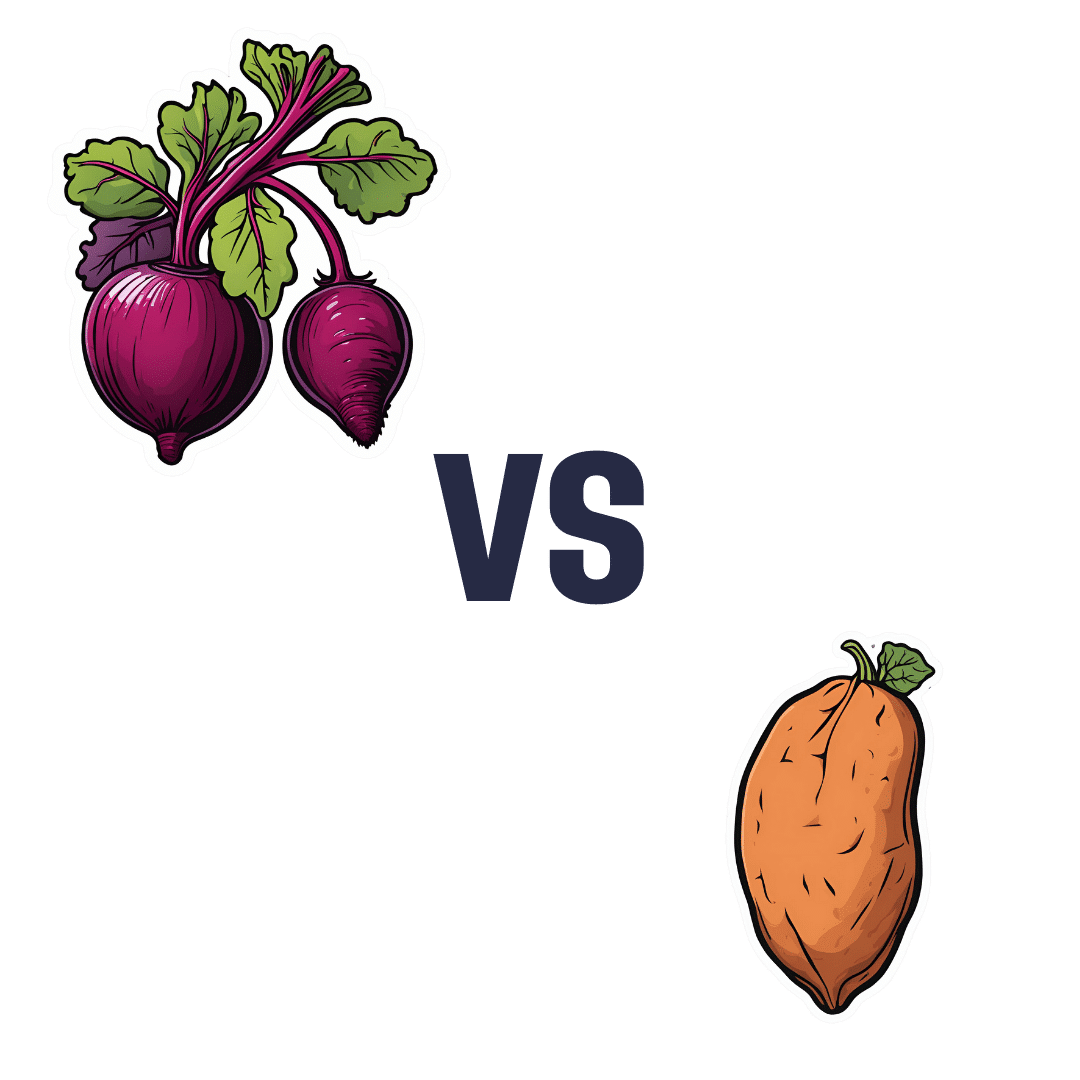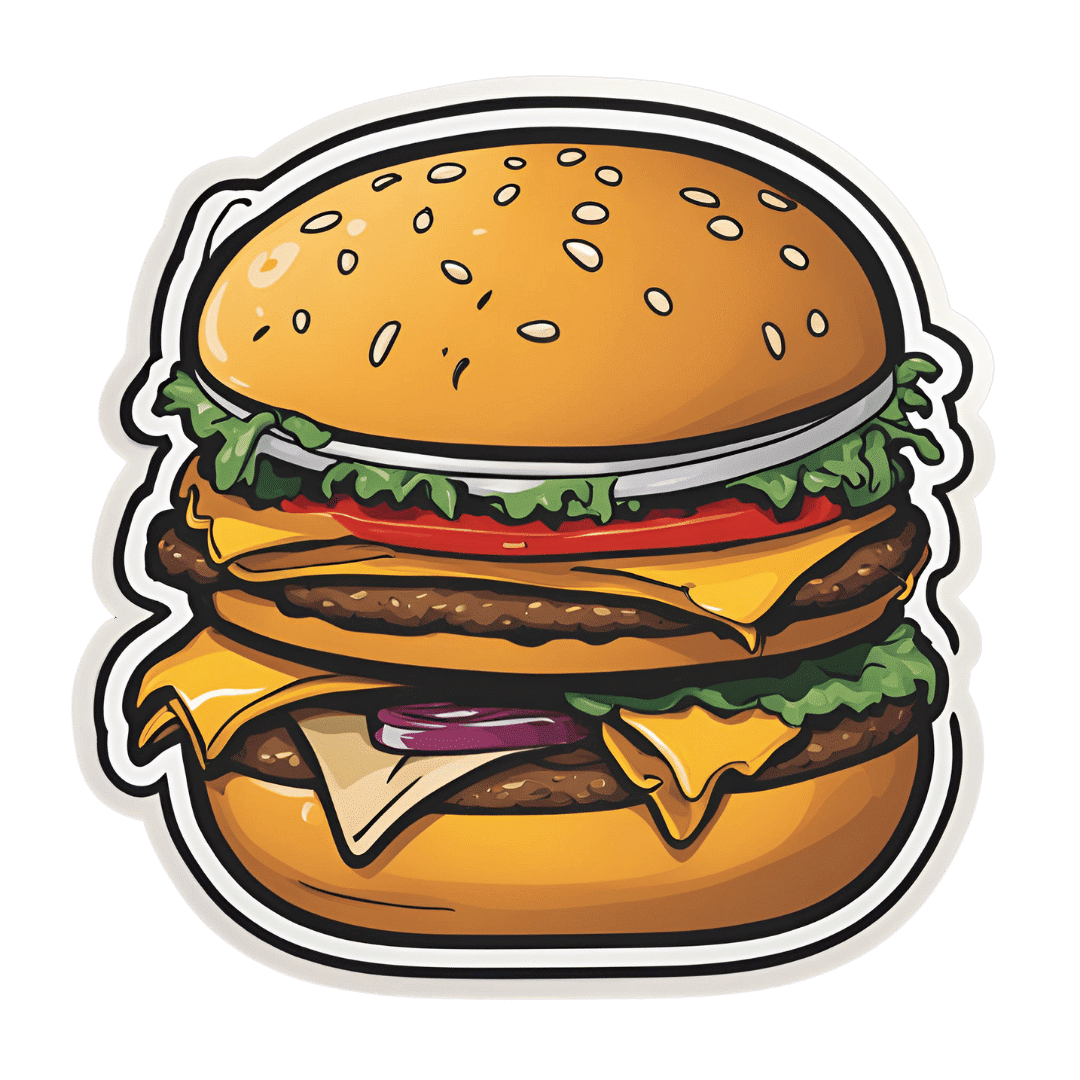
How Much Difference Do Probiotic Supplements Make, Really?
10almonds is reader-supported. We may, at no cost to you, receive a portion of sales if you purchase a product through a link in this article.
How Much Difference Do Probiotic Supplements Make?
There are three main things that get talked about with regard to gut health:
- Prebiotics (fibrous foods)
- Probiotics (things containing live “good” bacteria)
- Postbiotics (things to help them thrive)
Today we’ll be talking about probiotics, but if you’d like a refresher on general gut health, here’s our previous main feature:
Making Friends With Your Gut (You Can Thank Us Later)
What bacteria are in probiotics?
There are many kinds, but the most common by far are Lactobacillus sp. and Bifidobacteria sp.
Taxonomical note: “sp.” just stands for “species”. The first name is the genus, which contains a plurality of (sometimes, many) species.
Lactobacillus acidophilus, also written L. acidophilus, is a common species of Lactobacillus sp. in probiotics.
Bifidobacterium bifidum, also written B. bifidum, is a common species of Bifidobacterium sp. in probiotics.
What difference do they make?
First, and perhaps counterintuitively, putting more bacteria into your gut has a settling effect on the digestion. In particular, probiotics have been found effective against symptoms of IBS and ulcerative colitis, (but not Crohn’s):
- Probiotics in Irritable Bowel Syndrome: An Up-to-Date Systematic Review
- The role of probiotics in the prevention and treatment of IBS and other related diseases: a systematic review of randomized human clinical trials
- Safety and Potential Role of Lactobacillus rhamnosus GG Administration as Monotherapy in Ulcerative Colitis Patients
- Probiotics for induction of remission in Crohn’s disease
Probiotics are also helpful against diarrhea, including that caused by infections and/or antibiotics, as well as to reduce antibiotic resistance:
- Probiotics for the prevention of Clostridium difficile-associated diarrhea in adults and children
- Probiotic approach to prevent antibiotic resistance
Probiotics also boost the immune system outside of the gut, too, for example reducing the duration of respiratory infections:
You may recallthe link between gut health and brain health, thanks in large part to the vagus nerve connecting the two:
The Brain-Gut Highway: A Two-Way Street
No surprises, then, that probiotics benefit mental health. See:
- The effects of probiotics on mental health and hypothalamic-pituitary-adrenal axis: A randomized, double-blind, placebo-controlled trial
- A randomized controlled trial to test the effect of multispecies probiotics on cognitive reactivity to sad mood
- Clinical and metabolic response to probiotic administration in patients with major depressive disorder: A randomized, double-blind, placebo-controlled trial
There are so many kinds; which should I get?
Diversity is good, so more kinds is better. However, if you have specific benefits you’d like to enjoy, you may want to go stronger on particular strains:
Choosing an appropriate probiotic product for your patient: An evidence-based practical guide
Where can I get them?
We don’t sell them, but here’s an example product on Amazon, for your convenience.
Alternatively, you can check out today’s sponsor, who also sell such; we recommend comparing products and deciding which will be best for you
Enjoy!
Don’t Forget…
Did you arrive here from our newsletter? Don’t forget to return to the email to continue learning!
Recommended
Learn to Age Gracefully
Join the 98k+ American women taking control of their health & aging with our 100% free (and fun!) daily emails:
-
What Happens Every Day When You Quit Sugar For 30 Days
10almonds is reader-supported. We may, at no cost to you, receive a portion of sales if you purchase a product through a link in this article.
We all know that sugar isn’t exactly a health food, but it can be hard to quit. How long can cravings be expected to last, and when can we expect to see benefits? Today’s video covers the timeline in a realistic yet inspiring fashion:
What to expect on…
Day 1: expect cravings and withdrawal symptoms including headaches, fatigue, mood swings, and irritability—as well as tiredness, without the crutch of sugar.
Days 2 & 3: more of the same, plus likely objections from the gut, since your Candida albicans content will not be enjoying being starved of its main food source.
Days 4–7: reduction of the above symptoms, better energy levels, improved sleep, and likely the gut will be adapting or have adapted.
Days 8–14: beginning of weight loss, clearer skin, improved complexion; taste buds adapt too, making foods taste sweeter. Continued improvement in energy and focus, as well.
Days 15–21: more of the same improvements, plus the immune system will start getting stronger around now. But watch out, because there may still be some cravings from time to time.
Days 22–30: all of the above positive things, few or no cravings now, and enhanced metabolic health as a whole.
For more specificity on each of these stages, enjoy:
Click Here If The Embedded Video Doesn’t Load Automatically!
Want to learn more?
You might also like to read:
The Not-So-Sweet Science Of Sugar Addiction
Take care!
Share This Post
-
How To Reduce Knee Pain After Sitting
10almonds is reader-supported. We may, at no cost to you, receive a portion of sales if you purchase a product through a link in this article.
Sitting is bad for the health, and doubly so if you have arthritis, as a lack of regular movement can cause joints to “seize up”. So, what to do about it if you have to sit for an extended time?
Dr. Alyssa Kuhn, arthritis specialist, explains:
Movement remains key
The trick is to continue periodically moving, notwithstanding that you may need to remain seated. So…
- Heel slides
- Straighten and bend your leg by sliding or lifting your heel.
- Promotes blood flow and reduces fluid buildup in the knee.
- Helps lubricate the joint, making standing up easier.
- Heel lifts
- Lift your heels up and down while keeping feet on the ground.
- This one’s ideal for tight spaces, such as when riding in a car or airplane.
- Improves blood circulation and can reduce ankle swelling and leg heaviness.
Do 20–30 repetitions every now and again, to keep your joints moving.
Note: if you are a wheelchair user whose legs lack the strength and/or motor function to do this, in this case it’s the movement of the leg that counts, not where that movement originated from. So, if you use one hand to lift your leg slightly and the other to push it like a swing, that will also be sufficient to give the joint the periodic movement it needs.
For more on all of this plus visual demonstrations, enjoy:
Click Here If The Embedded Video Doesn’t Load Automatically!
Want to learn more?
You might also like to read:
Stand Up For Your Health (Or Don’t) ← our main feature on this also includes more things you can do if you must sit, to make sitting less bad!
Take care!
Share This Post
- Heel slides
-
Beetroot vs Sweet Potato – Which is Healthier?
10almonds is reader-supported. We may, at no cost to you, receive a portion of sales if you purchase a product through a link in this article.
Our Verdict
When comparing beetroot to sweet potato, we picked the sweet potato.
Why?
Quite a straightforward one today!
In terms of macros, sweet potato has more protein, carbs, and fiber. The glycemic index of both of these root vegetables is similar (and in each case varies similarly depending on how it is cooked), so we’ll call the winner the one that’s more nutritionally dense—the sweet potato.
Looking at vitamins next, beetroot has more vitamin B9 (and is in fact a very good source of that, unlike sweet potato), and/but sweet potato is a lot higher in vitamins A, B1, B2, B3, B5, B6, B7, C, E, K, and choline. And we’re talking for example more than 582x more vitamin A, more than 17x more vitamin E, more than a 10x more vitamin K, and at least multiples more of the other vitamins mentioned. So this category’s not a difficult one to call for sweet potato.
When it comes to minerals, beetroot has more selenium, while sweet potato has more calcium, copper, magnesium, manganese, phosphorus, and potassium. They’re approximately equal in iron and zinc. Another win for sweet potato.
Of course, enjoy both. But if you’re looking for the root vegetable that’ll bring the most nutrients, it’s the sweet potato.
Want to learn more?
You might like to read:
No, beetroot isn’t vegetable Viagra. But here’s what else it can do
Take care!
Share This Post
Related Posts
-
How To Out-Cheat “Cheat Days”
10almonds is reader-supported. We may, at no cost to you, receive a portion of sales if you purchase a product through a link in this article.
Out-Cheating “Cheat Days” (Or Even Just “Cheat Meals”)
If you are in the habit of eating healthily, the idea of a “cheat day” probably isn’t appealing—because you simply don’t crave junk food; it’s not what your gut is used to.
Nevertheless, sometimes cheat days, or at least cheat meals, choose us rather than the other way around. If your social group is having a pizza night or meeting up at the burger bar, probably you’re going to be having a meal that’s not ideal.
So, what to do about it?
Well, first of all, relax. If it really is an exception and not a regular occurrence, it’s not going to have a big health impact. Assuming that your basic dietary requirements are taken care of (e.g. free from allergens as necessary, vegan/vegetarian if that’s appropriate for you, adhering to any religious restrictions that are important to you, etc), then you’re going to have a good time, which is what scientists call a “pro-social activity” and is not a terrible thing.
See also: Is Fast Food Really All That Bad? ← answer: yes it is, but the harm is cumulative and won’t all happen the instant you take a bite of a chicken nugget
Think positive
No, not in the “think positive thoughts” sense (though feel free, if that’s your thing), but rather: focus on adding things rather than subtracting things.
It’s said:
❝It’s not the calories in your food that make the biggest impact on your health; it’s the food in your calories❞e
…and that’s generally true. The same goes for “bad things” in the food, e.g. added sugar, salt, seed oils, etc. They really are bad! But, in this case you’re going to be eating them and they’re going to be nearly impossible to avoid in the social scenarios we described. So, forget that sunk treasure, and instead, add nutrients.
10almonds tip: added nutrients remain added nutrients, even if the sources were not glowing with health-appeal and/or you ate them alongside something unhealthy:
- Those breaded garlic mushrooms are still full of magnesium and fiber and ergothioneine.
- The chili-and-mint peas that came as an overpriced optional side-dish with your burger are still full of protein, fiber, and a stack of polyphenols.
…and so on. And, the more time you spend eating those things, the less time you spend eating the real empty-calorie foods.
Fix the flaw
We set out to offer this guide without arguing for abstemiousness or making healthy substitutions, because we assume you knew already that you can not eat things, and as for substitutions, often they are not practical, especially if dining out or ordering in.
Also, sometimes even when home-cooking something unhealthy, taking the bad ingredient out takes some of the joy out with it.
Writers example: I once incorrectly tried to solve the fat conundrum of my favorite shchi (recipe here) by trying purely steaming the vegetables instead of my usual frying/sautéing them, and let’s just say, that errant-and-swiftly-abandoned version got recorded in my nutrition-tracker app as “sad shchi”.
So instead, fix the flaw by countering it if possible:
- The meal is devoid of fiber? Preload with some dried figs (you can never have too many dried figs in your pantry)
- The meal is high in saturated fat? Enjoy fiber before/during/after, per what’s convenient for you. Fiber helps clear out excess cholesterol, which is usually the main issue with saturated fat.
- The meal is salty? Double down on your hydration before, during, and after. If that sounds like a chore, then remember, it’s more fun than getting bloated (which results, counterintuitively, from dehydration—because your body detects the salt, and panics and tries to retain as much water as possible to restore homeostasis, resulting in bloating) and hypertensive (which results from the combination of the blood having too much salt and too little water, and cells retaining too much water and pressing inwards because it is the cells themselves that are bloated). So, tending to your hydration can help mitigate all of the above.
- The meal is full of high-GI carbs? Preload with fiber, enjoy the carbs together with fats, and have something acidic (e.g. some kind of vinegar, or citrus fruit) with it if that’s a reasonable option. Yes, this does mean that a Whiskey Sour is better for your blood sugars than an Old Fashioned, by the way, and/but no, it doesn’t make either of them healthy.
- The meal is inflammatory? Doing all of the above things will help, as will eating it slowly/mindfully, which latter makes it less of a shock to your system.
See also: How To Get More Nutrition From The Same Food
Enjoy!
Don’t Forget…
Did you arrive here from our newsletter? Don’t forget to return to the email to continue learning!
Learn to Age Gracefully
Join the 98k+ American women taking control of their health & aging with our 100% free (and fun!) daily emails:
-
An RSV vaccine has been approved for people over 60. But what about young children?
10almonds is reader-supported. We may, at no cost to you, receive a portion of sales if you purchase a product through a link in this article.
The Therapeutic Goods Administration (TGA) has approved a vaccine against respiratory syncytial virus (RSV) in Australia for the first time. The shot, called Arexvy and manufactured by GSK, will be available by prescription to adults over 60.
RSV is a contagious respiratory virus which causes an illness similar to influenza, most notably in babies and older adults.
So while it will be good to have an RSV vaccine available for older people, where is protection up to for the youngest children?
A bit about RSV
RSV was discovered in chimpanzees with respiratory illness in 1956, and was soon found to be a common cause of illness in humans.
There are two key groups of people we would like to protect from RSV: babies (up to about one year old) and people older than 60.
Babies tend to fill up hospitals during the RSV season in late spring and winter in large numbers, but severe infection requiring admission to intensive care is less common.
In babies and younger children, RSV generally causes a wheezing asthma-like illness (bronchiolitis), but can also cause pneumonia and croup.
Although there are far fewer hospital admissions among older people, they can develop severe disease and die from an infection.
Babies account for the majority of hospitalisations with RSV.
Prostock-studio/ShutterstockRSV vaccines for older people
For older adults, there are actually several RSV vaccines in the pipeline. The recent Australian TGA approval of Arexvy is likely to be the first of several, with other vaccines from Pfizer and Moderna currently in development.
The GSK and Pfizer RSV vaccines are similar. They both contain a small component of the virus, called the pre-fusion protein, that the immune system can recognise.
Both vaccines have been shown to reduce illness from RSV by more than 80% in the first season after vaccination.
In older adults, side effects following Arexvy appear to be similar to other vaccines, with a sore arm and generalised aches and fatigue frequently reported.
Unlike influenza vaccines which are given each year, it is anticipated the RSV vaccine would be a one-off dose, at least at this stage.
Protecting young children from RSV
Younger babies don’t tend to respond well to some vaccines due to their immature immune system. To prevent other diseases, this can be overcome by giving multiple vaccine doses over time. But the highest risk group for RSV are those in the first few months of life.
To protect this youngest age group from the virus, there are two potential strategies available instead of vaccinating the child directly.
The first is to give a vaccine to the mother and rely on the protective antibodies passing to the infant through the placenta. This is similar to how we protect babies by vaccinating pregnant women against influenza and pertussis (whooping cough).
The second is to give antibodies directly to the baby as an injection. With both these strategies, the protection provided is only temporary as antibodies wane over time, but this is sufficient to protect infants through their highest risk period.
Women could be vaccinated during pregnancy to protect their baby in its first months of life.
Image Point Fr/ShutterstockAbrysvo, the Pfizer RSV vaccine, has been trialled in pregnant women. In clinical trials, this vaccine has been shown to reduce illness in infants for up to six months. It has been approved in pregnant women in the United States, but is not yet approved in Australia.
An antibody product called palivizumab has been available for many years, but is only partially effective and extremely expensive, so has only been given to a small number of children at very high risk.
A newer antibody product, nirsevimab, has been shown to be effective in reducing infections and hospitalisations in infants. It was approved by the TGA in November, but it isn’t yet clear how this would be accessed in Australia.
What now?
RSV, like influenza, is a major cause of respiratory illness, and the development of effective vaccines represents a major advance.
While the approval of the first vaccine for older people is an important step, many details are yet to be made available, including the cost and the timing of availability. GSK has indicated its vaccine should be available soon. While the vaccine will initially only be available on private prescription (with the costs paid by the consumer), GSK has applied for it to be made free under the National Immunisation Program.
In the near future, we expect to hear further news about the other vaccines and antibodies to protect those at higher risk from RSV disease, including young children.
Allen Cheng, Professor of Infectious Diseases, Monash University
This article is republished from The Conversation under a Creative Commons license. Read the original article.
Don’t Forget…
Did you arrive here from our newsletter? Don’t forget to return to the email to continue learning!
Learn to Age Gracefully
Join the 98k+ American women taking control of their health & aging with our 100% free (and fun!) daily emails:
-
Ready… Set… Flow!
10almonds is reader-supported. We may, at no cost to you, receive a portion of sales if you purchase a product through a link in this article.
Time to make your new year plans? Or maybe you’ve already made a list, and you’re checking it twice. If so, now’s the time to make sure that your new year’s plans will flow:
“Flow”, as you may be aware, is the psychological state generally defined as “a state in which we feel good about what we’re doing, and just keep doing it, at a peak performance level”; the term was coined by psychologist Mihaly Csikszentmihalyi and has risen to popularity since.
We wrote about it a little before, here:
Morning Routines That Just Flow
The above article details how to start the perfect day, but how to start the perfect year? Firstly, it’s good to get the jump on the new year a little; see:
The Science Of New Year’s Pre-Resolutions
…and we also agree with Dr. Faye Bate, who preaches taking the path of least resistance when it comes to healthy habits:
How To Actually Start A Healthy Lifestyle In The New Year
Because…
Getting into the flow
The most hydrating drink is the one that [contains adequate water and] you will actually drink. The best exercise is the one you’ll do. The best sleep is the sleep you can actually get. And so on.
We see this—or rather its evil counterpoint—a lot in diet culture. People frame their willpower against the temptations of donuts and whatever, and make Faustian bargains whereby they will eat food they find boring in the hopes it will bring them good health. And it won’t. Because, they’ll give up quickly.
Instead, each part of our healthy life has to be engaged with with a sense of flow. Again, that’s: “a state in which we feel good about what we’re doing, and just keep doing it, at a peak performance level”
So we need to find healthy recipes we like (check out our recipe section!), we need to find exercise that we like, we need to find an approach to sleep that the Geneva Convention wouldn’t consider a kind a torture, and so forth. And, ideally, not just “like” in the sense of “this is tolerable” but “like” in the sense of “I am truly passionate about this thing”.
And that’s going to look different for each of us.
Running is a great example of something that some people truly love, whereas others will do almost anything to avoid.
And food? We’ve written before about the usefulness of a “to don’t” list; it’s like a “to do” list, but it’s things we’re not going to even try to do. For example, a person with two addictions is usually advised to quit one at a time, so quitting the other would go on a “to don’t” list for now. The same goes for food; you need to enjoy what you’re eating or you won’t “feel good about what we’re doing, and just keep doing it”, per flow. So, do not deprive yourself; it won’t work anyway; just pick one healthy change to make, and then queue up any other changes for once the first one has started feeling natural to you.
For more on “to don’t” lists and other such tricks, see: How To Keep On Keeping On… Long Term!
Staying in the flow
…is not usually a problem, you would think, because “…and just keep doing it, at peak performance level” but the fact is, sometimes we get kicked out of our flow by something external. We covered some of that in the above-linked “How To Keep On Keeping On” article, such as figuring out showstoppers in advance (for example, “if I get an injury, I will rest until it is healed”) and ideally, back-up plans.
For example, let’s say you have your dietary plan all worked out, then you are invited to someone’s birthday celebration a couple of weeks in, and you don’t want to rain on their parade, so you figure out for yourself in advance how you are going to mitigate any harm to your plans, e.g. “I will simply choose the healthiest option available, and not worry if it doesn’t meet my usual standards” or “I will simply fast” if that’s an appropriate thing for you (for some it might be, for some it might not be).
For more on this, see:
How To Avoid Slipping Into (Bad) Old Habits
Take care!
Don’t Forget…
Did you arrive here from our newsletter? Don’t forget to return to the email to continue learning!
Learn to Age Gracefully
Join the 98k+ American women taking control of their health & aging with our 100% free (and fun!) daily emails:









